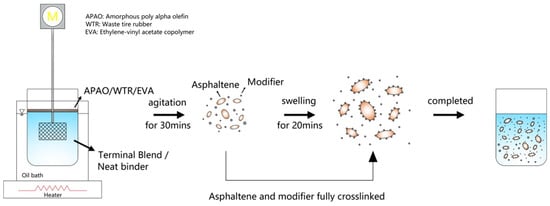High-Temperature Performance of Polymer-Modified Asphalt Mixes: Preliminary Evaluation of the Usefulness of Standard Technical Index in Polymer-Modified Asphalt
Abstract
Share and Cite
Yan, K.; You, L.; Wang, D. High-Temperature Performance of Polymer-Modified Asphalt Mixes: Preliminary Evaluation of the Usefulness of Standard Technical Index in Polymer-Modified Asphalt. Polymers 2019, 11, 1404. https://doi.org/10.3390/polym11091404
Yan K, You L, Wang D. High-Temperature Performance of Polymer-Modified Asphalt Mixes: Preliminary Evaluation of the Usefulness of Standard Technical Index in Polymer-Modified Asphalt. Polymers. 2019; 11(9):1404. https://doi.org/10.3390/polym11091404
Chicago/Turabian StyleYan, Kezhen, Lingyun You, and Daocheng Wang. 2019. "High-Temperature Performance of Polymer-Modified Asphalt Mixes: Preliminary Evaluation of the Usefulness of Standard Technical Index in Polymer-Modified Asphalt" Polymers 11, no. 9: 1404. https://doi.org/10.3390/polym11091404
APA StyleYan, K., You, L., & Wang, D. (2019). High-Temperature Performance of Polymer-Modified Asphalt Mixes: Preliminary Evaluation of the Usefulness of Standard Technical Index in Polymer-Modified Asphalt. Polymers, 11(9), 1404. https://doi.org/10.3390/polym11091404







